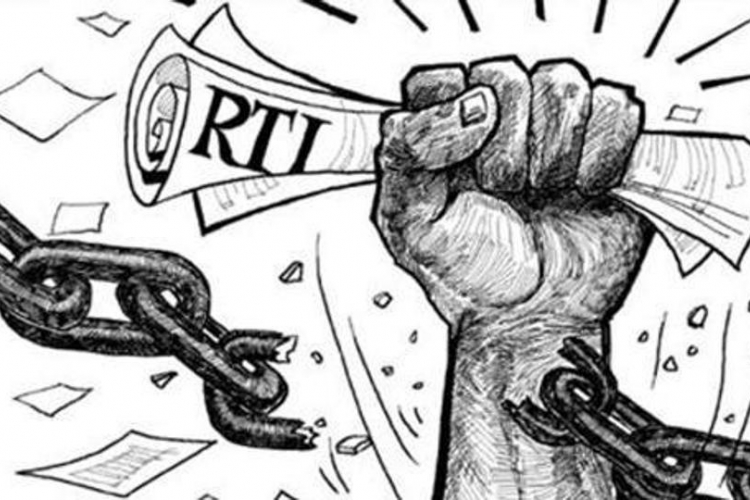RTI Amendment Bill: Changes and Implications
RTI Amendment Bill
Bill for amendment in Right to Information Act (RTI) Act of 2005 was introduced on July 19 in Lok Sabha. It was introduced by, Minister of State for Personnel, Public Grievances and Pensions. The bill is in the Lok Sabha for debate
Proposed Changes:
Tenure of CIC and IC: The Chief Information Commissioner (CIC) and Information Commissioner (ICs) have a tenure of five years. The Bill proposes that the tenure of the CICs and ICs should depend on the central government
Salary of CIC and IC: The salaries of CIC and ICs in the Centre are equivalent to salaries of Chief Election Commissioner and Election Commissioners in the Centre. Similarly, the salaries of CIC and ICs in states are equivalent to salaries of Election Commissioner and Election Commissioners in the state. The new Bill says that the salaries of CIC and ICs both in Centre and State must be decided by the central government.
Provision of pension: The Act says that if the CIC and ICs both in State and Centre are receiving a pension or any other retirement benefits for previous government service, then their salaries are reduced by an amount equal to the pension. The amendment wants to remove these provisions. In the above context, the government service means, services under the central government, state government, corporation established under a central or state law, or company-owned or controlled by the central or state government.
Why the changes?
The Statement of Objects and Reasons of the RTI (Amendment) Bill, 2019 reasons that the functions being carried out by the Election Commission of India and the Central and State Information Commissions are "totally different". While the Election Commission is a constitutional body established under the Article 324 of the Constitution of India for conducting elections to the Parliament and State Legislatures and to the offices of the President and Vice President held under the Constitution, the Central and State Information Commissions are statutory bodies established under the RTI Act of 2005.
Therefore, the mandate of Election Commission of India and Central and State Information Commissions are different. Hence, their status and service conditions need to be rationalized accordingly
The implication of the proposed changes
The proposed amendments tabled in Parliament on July 19, 2019, have been in the offing for some time now. In the form of the Right to Information (Amendment) Bill, 2019, they seek to amend Sections 13, 16, and 27 of the RTI Act which carefully links, and thereby equates, the status of the Central Information Commissioners (CICs) with the Election Commissioners and the State Information Commissioners with the Chief Secretary in the States, so that they can function in an independent and effective manner. The deliberate dismantling of this architecture empowers the Central government to unilaterally decide the tenure, salary, allowances and other terms of service of Information Commissioners, both at the Centre and the States.
The amendment goes against the Supreme Court judgement of February 2019 (in the case of Anjali Bhardwaj and Others vs Union of India and Others). The apex court had clearly stated while dealing with vacancies of information commissioners that, "Insofar as terms and conditions of appointment are concerned, no doubt, Section 13(5) of RTI Act states that the CIC and Information Commissioners shall be appointed on the same terms and conditions as applicable to the Chief Election Commissioner/Election Commissioner. At the same time, it would also be appropriate if the said terms and conditions on which such appointments are to be made are specifically stipulated in the advertisement and put on the website as well.
The RTI has been used brilliantly and persistently to ask a million questions across the spectrum — from the village ration shop, the Reserve Bank of India, the Finance Ministry, on demonetisation, non-performing assets, the Rafale fighter aircraft deal, electoral bonds, unemployment figures, the appointment of the Central Vigilance Commissioner (CVC), Election Commissioners, and the non-appointment of the Information Commissioners themselves. The information related to decision-making at the highest level has in most cases eventually been accessed because of the independence and high status of the Information Commission. That is what the government is trying to amend.
The RTI movement has struggled to access information and through it, a share of governance and democratic power. The Indian RTI law has been a breakthrough in creating mechanisms and platforms for the practice of continual public vigilance that are fundamental to democratic citizenship. The most unequal struggle to extract information from vested interests in government needed an institutional and legal mechanism which would not only be independent but also function with a transparency mandate and be empowered to over-ride the traditional structures of secrecy and exclusive control. An independent Information Commission which is the highest authority on information along with the powers to penalise errant officials has been a cornerstone of India’s celebrated RTI legislation.
Apart from Section 13 which deals with the terms and conditions for the Central Information Commission, in amending Section 16, the Central government will also control through rules, the terms and conditions of appointment of Commissioners in the States. This is an assault on the idea of federalism.


 IAS -2025 Prelims Combined Mains Batch - III Starts - 14-04-2024
IAS -2025 Prelims Combined Mains Batch - III Starts - 14-04-2024